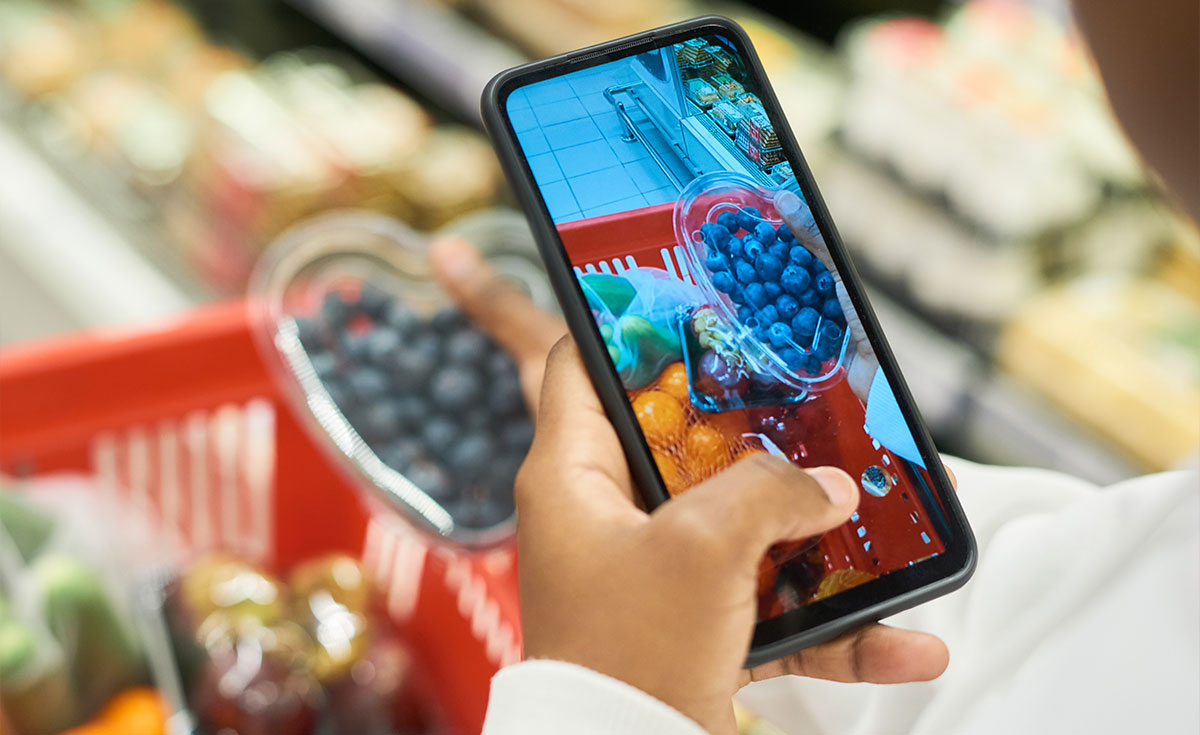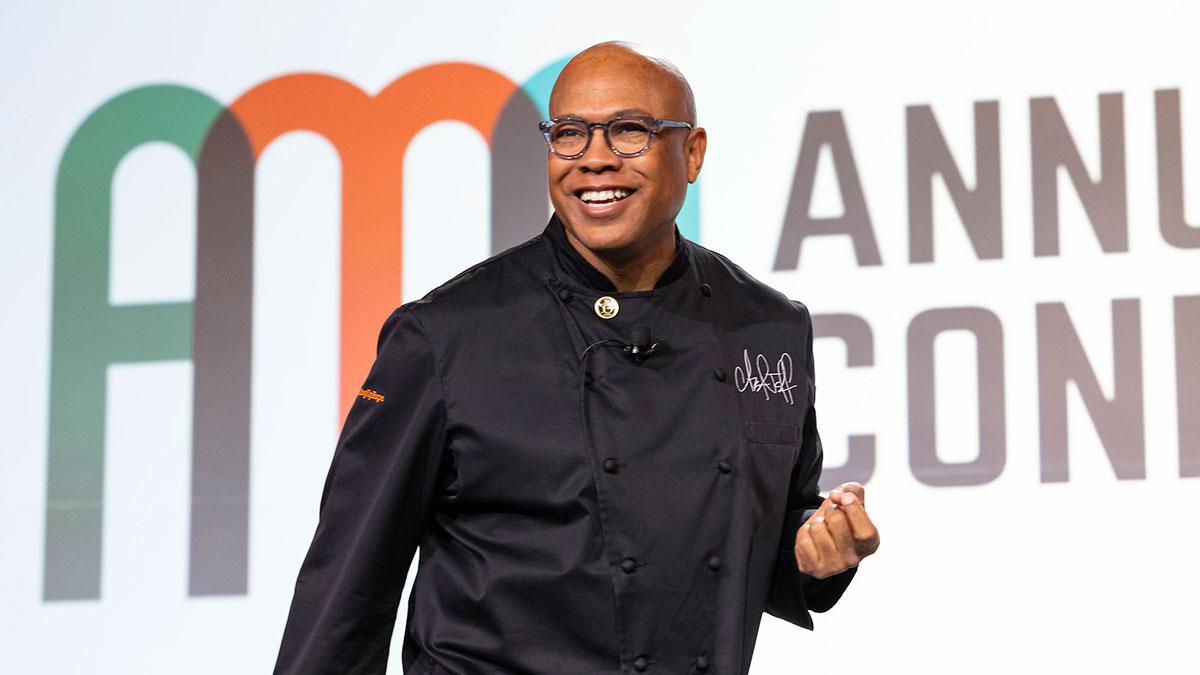By: Mark Baum, SVP of Industry Relations and Chief Collaboration Officer, Food Marketing Institute

Recently FMI, in partnership with global consulting firm Oliver Wyman, jointly released a compilation journal of strategic insights to help senior executives successfully guide their companies in this ever-changing food retail environment.
Boardroom is comprised of original perspectives from leading experts in food retail on a selection of the most critical issues executives must confront in boardrooms across the country and around the world. We are excited to share a series of Q&As with various authors from papers included in the journal that will give an expanded perspective on the key topics.
FMI members are in a highly competitive, low margin business. Success is predicated on constant evaluation of changing market conditions, continual cost reduction and process improvement, along with investments in a variety of growth strategies, to drive the retail profit engine. Our partners at Oliver Wyman have identified two archetypes of successful retailers: “Bears” and “Sharks”. The former are disrupters, often stealing share from existing competitors; the latter simply outswim (read: outperform) the rest also, winning against the third archetype, “Salmon” (food for both bears and sharks!).
In the third part of our series, I spoke with David Waller, Oliver Wyman Retail Practice Partner, and Jacqui Martinez, Oliver Wyman Retail Practice Partner, on potential growth strategies for retailers and the strategies that will allow them to survive in an increasingly competitive and changing environment.
What made you so interested in exploring growth strategies for retailers?
Jacqui Martinez: Most of the time, retailers (FMI members/ our clients) are focused on the near term, and they have to be. They very rarely get the chance to take a step back and think about the five year plan. When you’re in that daily grind you miss what happens over the long run, so we wanted to take a step back and look at 30 or 40 years of retail history. What has happened? What are some of the underlying forces behind that? And then therefore, what are some of the principles that should govern the day-to-day grinds that all retailers have to go through?
David Waller: If I think about the central challenge of retail, it is growth. There are at least three different tidal forces that are working against traditional retailers. You have the rise of discounters, emergence of online business models, and the trend toward consolidation. In many ways, we are interested in growth strategies because of the centrality of that challenge and how severe it is becoming for many players who have coasted for a while and are now in more precarious straits.
What advice would you give to retailers to successfully manoeuvre the transition from “bear” to “shark” or “a new kind of bear”?
Martinez: I would say the capabilities that make you a successful bear will not make you a successful shark. The sooner you recognize that and start to plan for the capabilities you need in your next life stage, the better off you’ll be.
Talk a little about not only “strategies to survive”, but strategies to thrive in an increasingly omnichannel environment.
Waller: I think the first principle is truly making the most of your assets. Most retailers are quite rich in customer relationships and customer insight. Retailers with a loyalty program end up having very long and comprehensive histories of what customers bought, when they bought it, and the circumstances under which they bought the products, which is really powerful. Today’s retailers need to make much better use of that information.
What are the challenges and opportunities for companies as they navigate away from face to face contact with customers?
Waller: All of this raises the question of what is a store good for. Convenience has been one factor, but it gives nowhere near the same advantage it once did because of the rise of home delivery. That forces you to answer a different question – what can’t you do online? Well, you can’t touch things online; you can’t taste or smell or feel or try on products. There are stores that are going to have to think about reinventing the layout, the look and feel, the way things are presented to customers, and changing the expectations of what you’re in a store to do. Retailers need to make it less about the products on the shelves and more about the experience of shopping.
What are the opportunities in this space? I think there is a huge and unexploited opportunity to connect to just other areas of consumer’s lives, treating them as not just customers in a transaction but as people.
*This interview is the third of a six-part Q&A series between FMI executives and Oliver Wyman partners on the inaugural issue of our joint journal Boardroom. Download Boardroom on FMI’s website to read the full articles. Click here to read more from this Q&A.

 Industry Topics address your specific area of expertise with resources, reports, events and more.
Industry Topics address your specific area of expertise with resources, reports, events and more.
 Our Research covers consumer behavior and retail operation benchmarks so you can make informed business decisions.
Our Research covers consumer behavior and retail operation benchmarks so you can make informed business decisions.
 Events and Education including online and in-person help you advance your food retail career.
Events and Education including online and in-person help you advance your food retail career.
 Food Safety training, resources and guidance that help you create a company food safety culture.
Food Safety training, resources and guidance that help you create a company food safety culture.
 Government Affairs work — federal and state — on the latest food industry policy, regulatory and legislative issues.
Government Affairs work — federal and state — on the latest food industry policy, regulatory and legislative issues.
 Get Involved. From industry awards to newsletters and committees, these resources help you take advantage of your membership.
Get Involved. From industry awards to newsletters and committees, these resources help you take advantage of your membership.
 Best practices, guidance documents, infographics, signage and more for the food industry on the COVID-19 pandemic.
Best practices, guidance documents, infographics, signage and more for the food industry on the COVID-19 pandemic.
